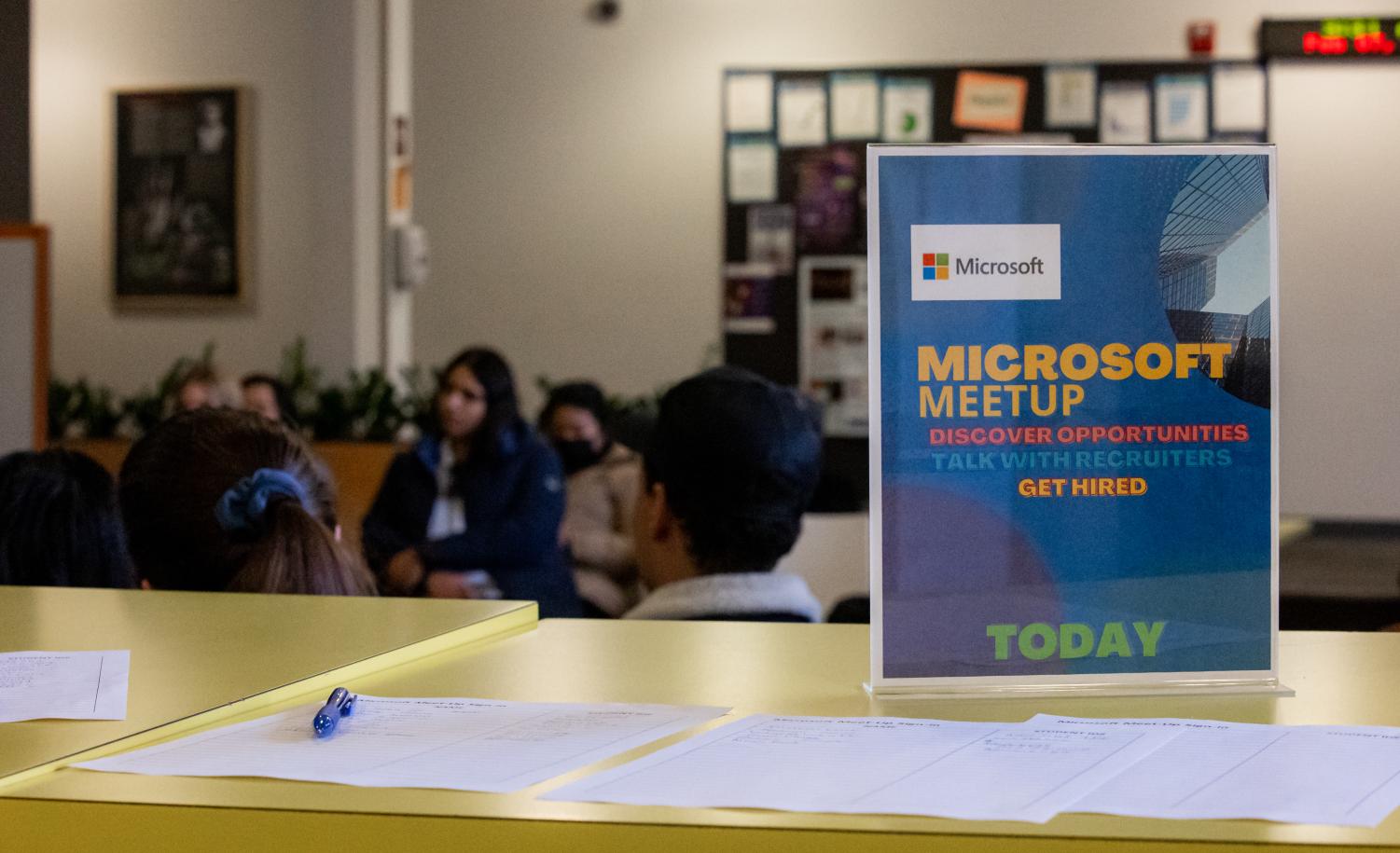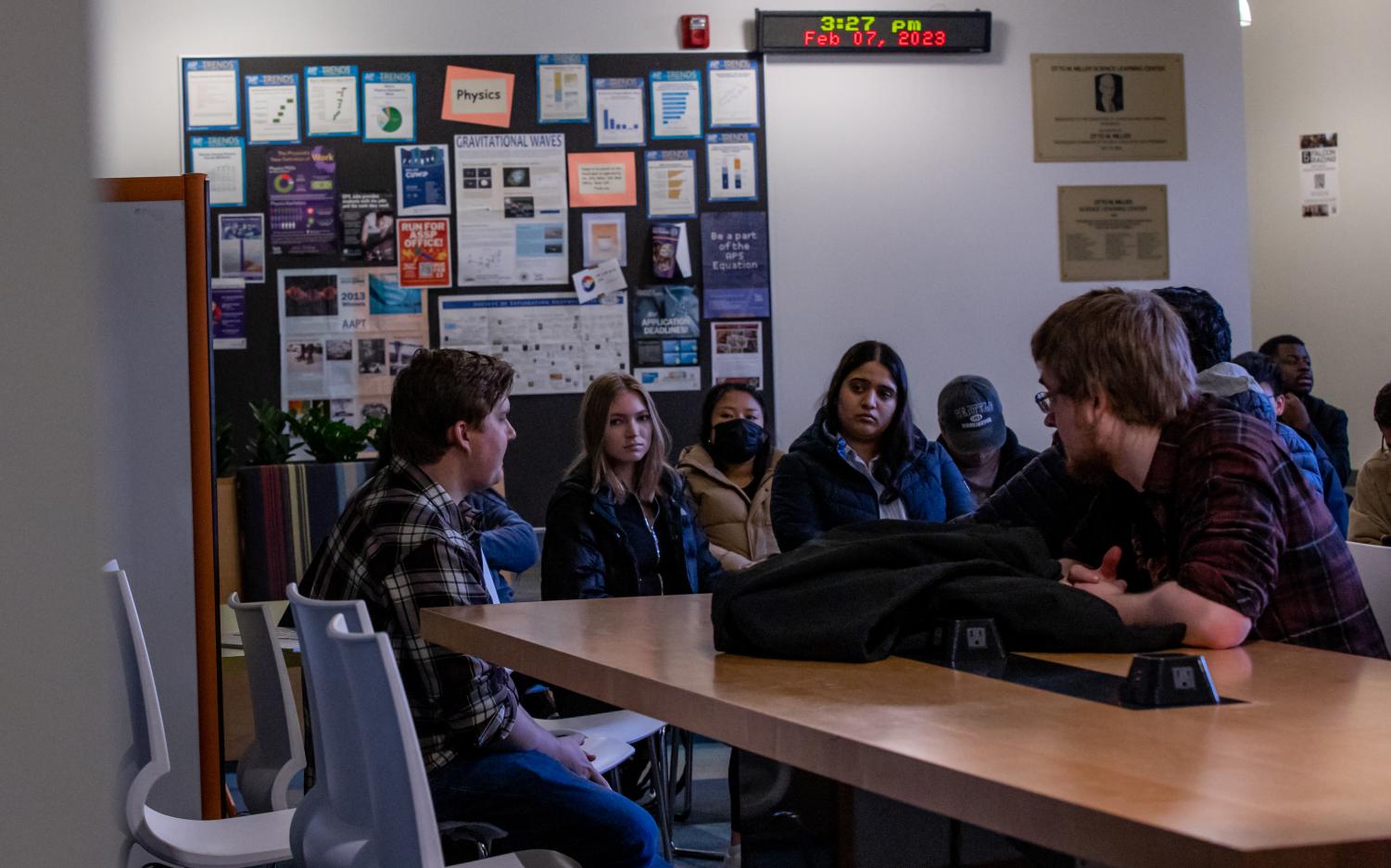Start looking for jobs now
As tech companies pull out of Seattle, job market could waver
February 8, 2023

For students at Seattle Pacific University, looking ahead to career opportunities can be daunting in a city that has recently and consistently been hit hard in the business sector. Tech giants Twitter and Amazon are closing their Seattle locations after intense layoffs and budget cuts, and downtown Seattle has been impacted by the announcement that both the Nike store and Regal Meridian movie theater are closing.
This shift is largely due to the COVID-19 pandemic and its many economic, business and cultural effects. The uncertain nature of the nation’s economy and growing preferences for remote work both lend to the decrease in Seattle’s business boom.
Victoria Thornton, a senior business major, is looking to be a data analyst in Seattle after she graduates.
“Part of the reason that I came to Seattle Pacific is because of the city. There’s career opportunities here in business or tech, but COVID threw a curveball into the situation,” Thornton said. “I never expected to graduate in a recession. It’s daunting to approach my career.”
Charlotte Choat, a freshman linguistics major, is already thinking about Seattle’s career market.
“I’m hoping these four years are worth it, but I am a bit worried about finding a job after graduation in the city,” Choat said.
Lori Brown, director of the Center for Career and Calling at SPU, reminds students that though it may look dire, there are still many opportunities for future and recent graduates.
“While the economy is taking a hit right now, the Seattle market remains strong. There have been a lot of layoffs in the tech sector, but that doesn’t mean those companies aren’t hiring,” Brown said.

In looking at how to save money efficiently, companies generally eliminate higher paying positions, which means those looking at entry-level, lower-paying jobs have little to worry about. Brown hopes to dispel any concern that these companies withdrawing will affect any specific tech-based majors.
“I don’t think it’s going to hit one major more than another. There are a number of companies that don’t really care what your major is because any major coming out of college has given you kind of a bedrock foundation,” Brown said.
Instead, Brown argues that it is readiness to interview, experience in internships, and efficient searching skills that will land you a good job. An on campus resource students can use to learn more facts and habits to help with career building is the Center for Career and Calling.
“I’ve received really great advice,” Thornton said. “For example, young people have more drive, and they’re more excited about entering the workforce. Because of that, companies would see potential behind somebody who’s younger and coming fresh out of school. It’s not all bad out there.”
Resources at the CCC include advice, mock interviews, LinkedIn profile set up, internship searches and much more. Brown urges students to be intentional about finding a job, starting now.
“If you reach out to or have any kind of connection with two professionals a month, you’re starting to build relationships with people who are in the workforce, who can put a good word in for you,” Brown said. “Do a little bit now so that you don’t have to do all of it later.”
Seattle’s struggling tech market is not the end-all for job searchers, and the process of finding a career need not be a hopeless endeavor. Building connections, experience and opportunities entails hard work, but resources and community are available in excess at SPU.
“It’s just invaluable to get ready,” Brown said. “Everybody has to start.”



























































































